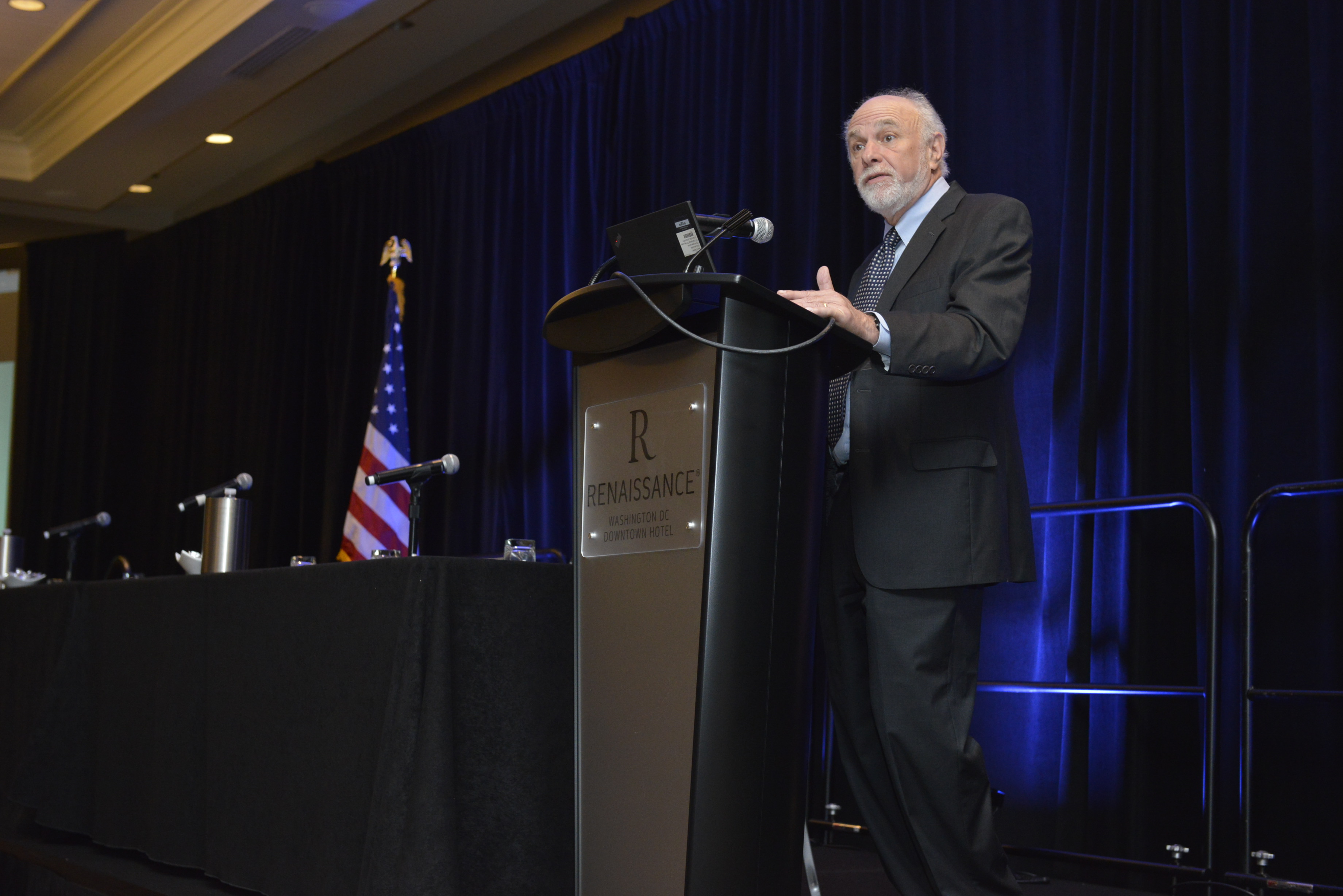The Justice Department Looks Ahead at the National Institute of Justice’s National Sexual Assault Policy Symposium
I had the privilege of addressing the National Sexual Assault Policy Symposium yesterday. I thank my colleagues at the National Institute of Justice (NIJ) and its Forensic Center of Excellence for organizing the symposium, as well as the survivors, dedicated victim’s advocates, accomplished researchers, law enforcement professionals, policymakers, crime lab directors, prosecutors, defense attorneys and medical and hospital administrators for sharing their knowledge of and passion for the issue of effective response to sexual assault.

The goal of the symposium was to equip us all with the tools, resources and solutions we need to address the impact of sexual assault on victims and to manage the sexual assault response process, from the initiation of evidence collection and laboratory processing through the conclusion of sexual assault investigations.
The Department of Justice is committed to thoroughly investigating sexual assault crimes and reducing their incidence. This commitment manifests itself in the wide-ranging assistance the department provides in the areas of forensic examination, investigation, victims’ services and assistance and forensic testing of evidence. During the Obama Administration, the department has had significant achievements in the service of this commitment. In my remarks at the symposium, I highlighted some of these achievements:
- In 2012, then-Attorney General Eric Holder announced that the FBI’s Uniform Crime Report would update the definition of rape to account for all forms of rape, regardless of the victim’s gender or relationship to the offender and to cover circumstances where the victim is incapacitated and thus incapable of giving consent.
- Also in 2012, the department released standards for implementing the Prison Rape Elimination Act, outlining a comprehensive approach to preventing and addressing sexual assault in correctional facilities.
- In 2013, the department released an updated National Protocol for Sexual Assault Medical Forensic Exams for Adults and Adolescents and a companion guide designed to assist administrators of confinement facilities in responding to reports of sexual assault.
- In 2016, we released a similar pediatric protocol, offering evidence-based recommendations for health care providers who care for child sexual abuse victims.
- The Violence Against Women Reauthorization Act of 2013 includes an increased emphasis on sexual assault and provides for new designated funding opportunities for programs that promote a coordinated response to sexual assault grounded in practices that research tells us are either promising or proven effective.
The department has also addressed sexual assault through direct assistance, research, guidance and funding. These efforts that have started to deliver promising results, such as:
- The NIJ and FBI Laboratory have formed a unique partnership to address sexual assault kits that were previously unsubmitted and those where there has never been a request for DNA analysis. The goal of this project is not only to alleviate the backlog of previously untested kits but also to identify ways to improve the collection, handling and processing of quality DNA evidence. The centralized lab created by the partnership has already tested more than 1,300 cases and uploaded approximately 650 profiles into the Combined DNA Index System (CODIS), which links violent crimes and known offenders.
- NIJ research grants awarded in 2011 have supported the efforts of the Houston Police Department and Wayne County, Michigan, Prosecutor’s Office to process unsubmitted sexual assault kits. The team in Michigan contributed to a census of more than 11,000 previously submitted kits and trained law enforcement officers to recognize physiological and psychological trauma symptoms. The Houston Police Department formed a special squad to investigate suspects identified through the testing of previously unsubmitted kits and streamlined hospital processes for how evidence is packaged in sexual assault kits.
- Last December, the department issued Guidance on Identifying and Preventing Gender Bias in Law Enforcement Response to Sexual Assault and Domestic Violence. To support the implementation of the guidance, the Office on Violence Against Women (OVW) will be awarding eight grants totaling $4.5 million to law enforcement agencies.
- Through the Sexual Assault Services program, OVW is awarding almost $23 million for formula grants, $3.5 million for culturally specific services and $3.5 million to tribal programs.
- Reducing sexual assault on college campuses remains a top priority for the Obama Administration. This year, OVW implemented a special campus legal services project to provide comprehensive approaches to legal services for college and university students who are victims of sexual assault on and off campus.
Ultimately, this two-day symposium provided an opportunity to learn from the best practices of many experts in this field and identify ways to improve our response to sexual assault crimes. Participants discussed successful strategies and lessons learned for solving sexual assault cases, for gathering and evaluating sexual assault evidence in timely fashion and for doing all that can be done to prevent sexual assault.
Participants in the symposium also heard from survivors who exemplified courage as they shared their experiences. Their stories showcase the human dimension of these crimes and the importance of compassionately supporting victims in the aftermath of sexual assault. Their insights guide our effort to improve the response to these crimes and strengthen our commitment to preventing them. We, as a nation, and we, as the U.S. Department of Justice, owe this to our survivors. They deserve trust, transparency and a system that works for them.

 U.S. Department
of Justice
U.S. Department
of Justice
